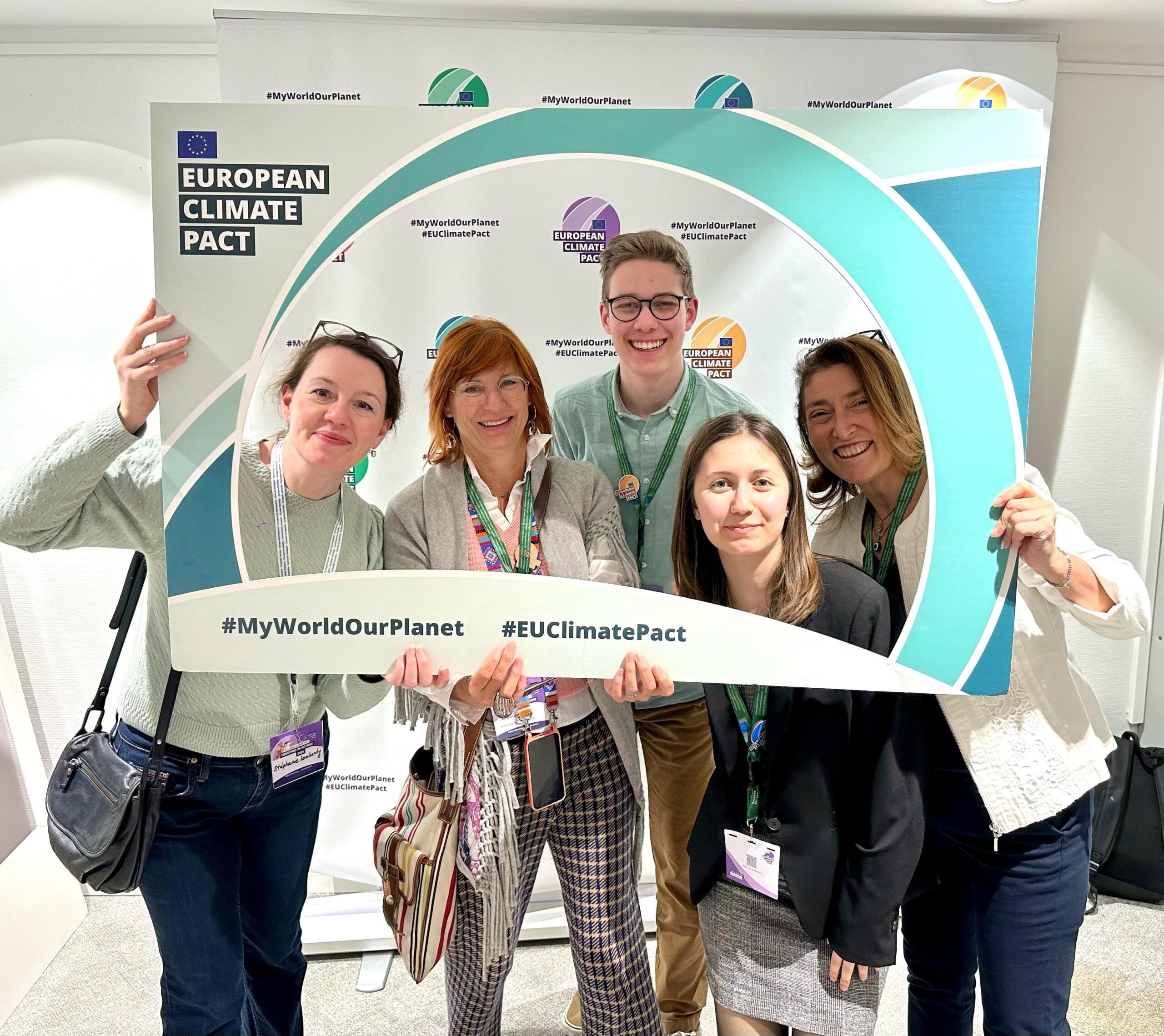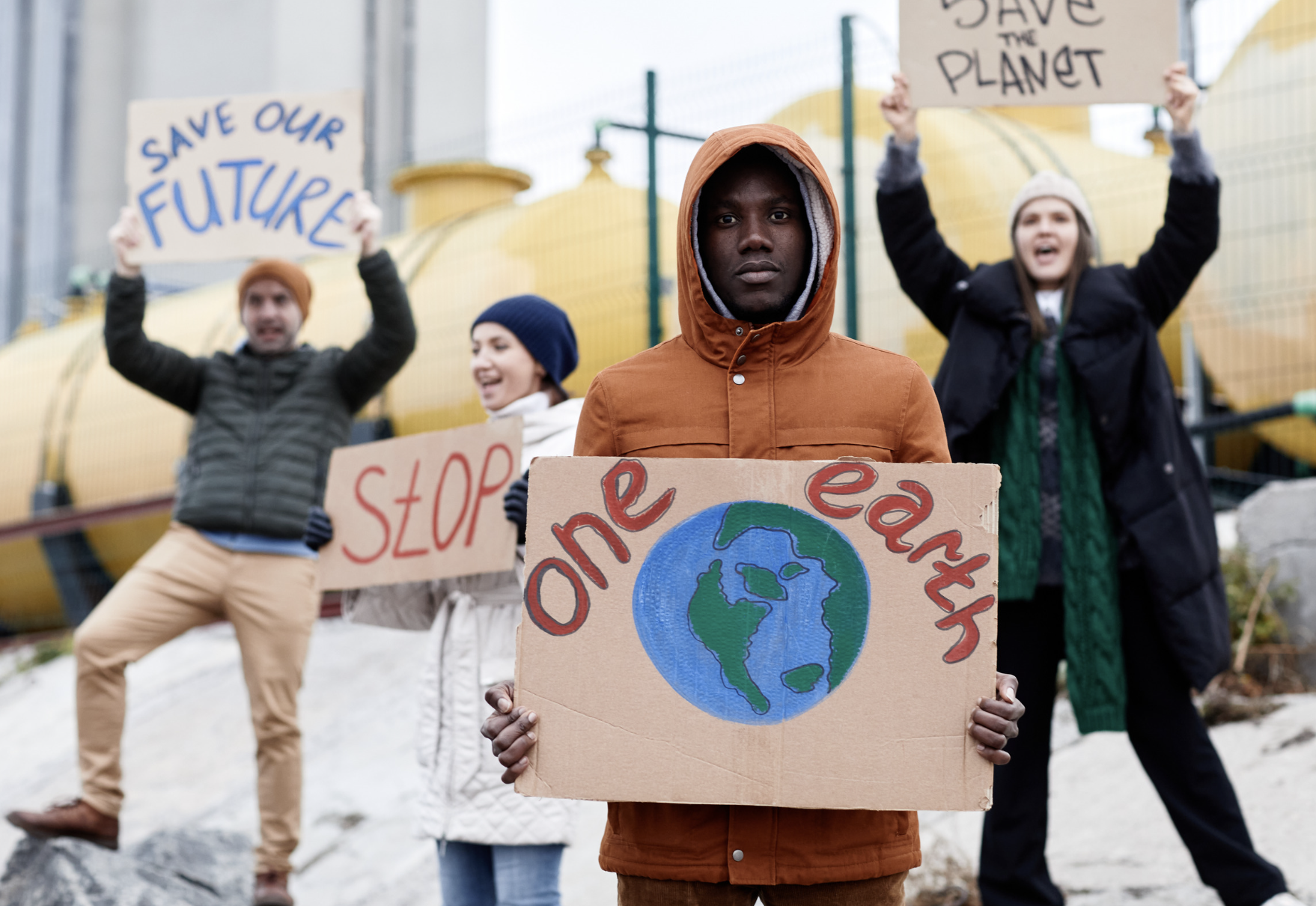LESS IS MORE: HOW DEGROWTH WILL SAVE THE WORLD
4 min de lecture
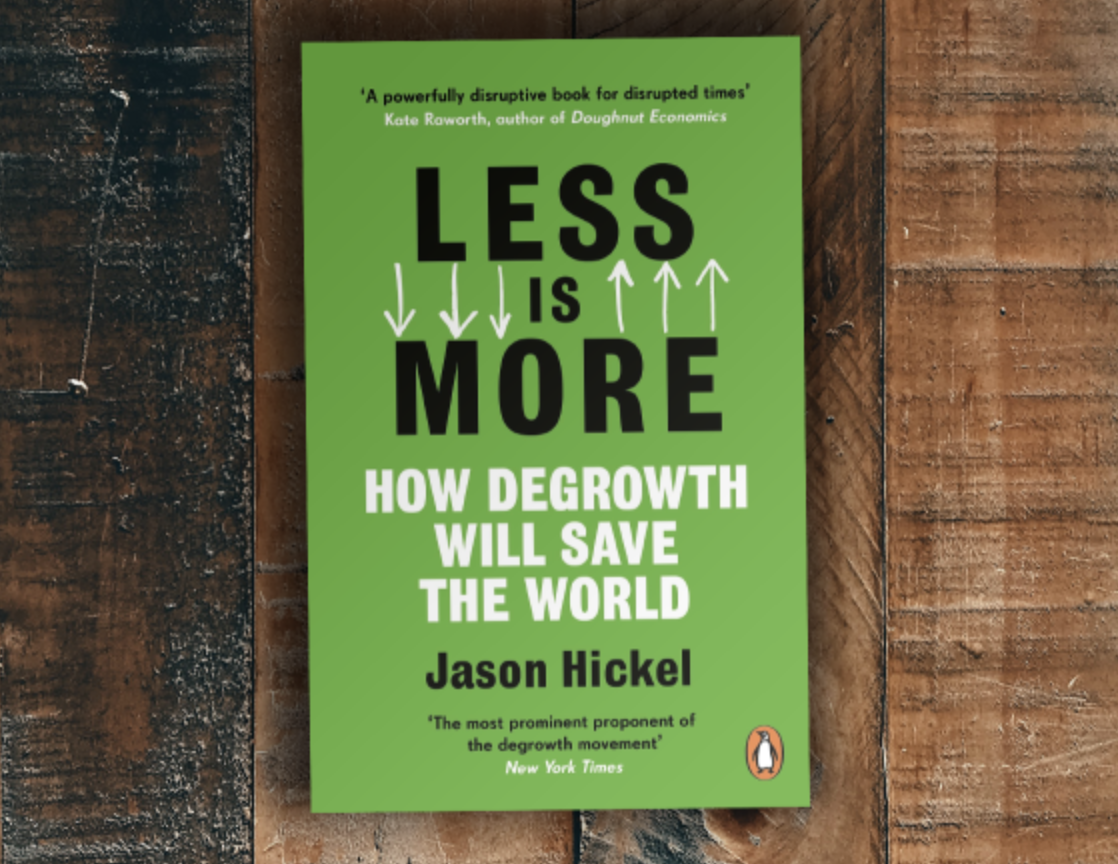
« LESS IS MORE: How degrowth will save the world. » Jason Hickel’s conference in Luxembourg
On Monday, December 16th, Jason Hickel, anthropologist, economic thinker, and author of Less Is More: How Degrowth Will Save the World, captivated the audience at the Hotel Parc Belle-Vue in Luxembourg. In a packed room, Hickel delivered a transformative message:
The crises we face—climate collapse, ecological destruction, and inequality—are not accidental. They are the product of an economic system obsessed with endless growth, regardless of the cost to people and the planet.
The current growth-driven economic model, Hickel argued, is at the root of environmental collapse and widening global inequalities. Instead of delivering prosperity for all, it creates artificial scarcity, exploits resources in the Global South, and erodes the ecosystems essential for life.
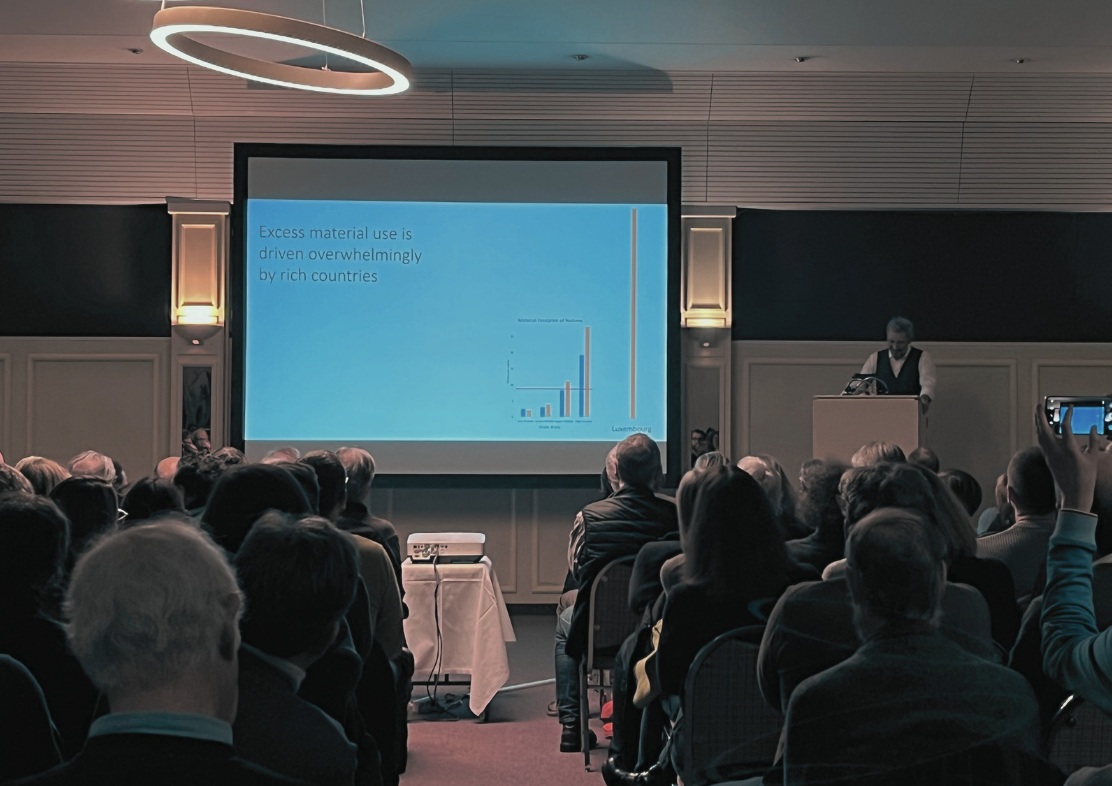
Organized by the Mouvement Ecologique and several partners, including CELL, the conference was a wake-up call. Hickel dismantled the myths surrounding capitalism, revealing its true cost: environmental degradation, social injustice, and global human deprivation.
“Growth for what? And for whom?”
Hickel invited the audience to critically question the concept of economic growth:
“Growth is often framed as progress, but what are we growing? SUVs, private jets, fast fashion, weapons? At whose expense? We don’t need more production for its own sake. We need an economy that meets human needs without destroying the planet.”
Hickel’s analysis painted a stark picture of the modern economy:
- A world of appropriation: nearly half of the resources consumed in the Global North are appropriated from the Global South, perpetuating poverty and environmental destruction. Lands that could feed billions are instead used to produce luxury goods for wealthier nations.
- The energy trap: high-income countries consume unsustainable levels of energy. Efficiency improvements alone cannot address this. “A 20% savings in aluminum doesn’t reduce the damage—it funds new markets, more cans, more consumption.”
- Climate injustice: without systemic change, the Global North will exhaust the remaining carbon budget, leaving poorer nations to bear the brunt of ecological collapse. Rich countries must reduce material use by 70% to stay within planetary boundaries.
What can be done? The path of degrowth
Degrowth, as Hickel explained, is not about sacrifice but about living better with less.
“Degrowth doesn’t mean reducing all production—it means scaling down what is harmful, wasteful, and unnecessary, while expanding what truly matters: public transit, clean energy, healthcare, housing, education.”
He outlined clear, actionable solutions:
Public jobs guarantees.
Providing dignified work to build renewable energy systems, restore ecosystems, and improve collective well-being.
Universal public services.
Guaranteeing access to essentials like healthcare, housing, transit, and education, independent of economic fluctuations.
Reclaiming economic democracy.
Shifting control of finance and production to serve ecological and social goals. “Right now, banks decide where investments go—into fossil fuels, luxury goods, and destruction. We need to take back control and steer production toward what people and the planet need.”
A call for global justice
Hickel underscored the necessity of pairing degrowth in high-income countries with economic liberation for the Global South. Breaking exploitative trade systems and supporting self-determination are crucial for a sustainable future.
“While the Global North thrives on extraction, the Global South is left impoverished. True ecological justice means breaking this cycle and supporting nations to develop sustainably, on their own terms.”
He emphasized the power of collective movements, urging environmental justice campaigns to build alliances with labor unions and working-class organizations in order to create enough pressure for political actions. Together, these coalitions can challenge entrenched systems and pave the way for transformative change.
It’s time for courage!
Hickel stressed the urgency of bold action: “This is not the time for timid reforms. We already know what to do. The question is: do we have the courage to act?”
At CELL, Hickel’s message resonates deeply with our mission: empowering communities to rethink, reshape, and reclaim their systems while co-creating a resilient future that prioritizes life over profit. As he concluded:
“We are not powerless. We are the ones who produce the wealth of nations. The time has come to take back democratic control of our economy and build a future rooted in justice, well-being, and ecological balance.”
The conference was an invitation to act. It reminded us that a livable future is within reach, but it demands collective action and a radical reimagining of the systems that shape our world. Only building an alternative system can enable people to make better decisions.
Wondering what YOU can do? Explore CELL’s initiatives and join us in creating a just and resilient future.

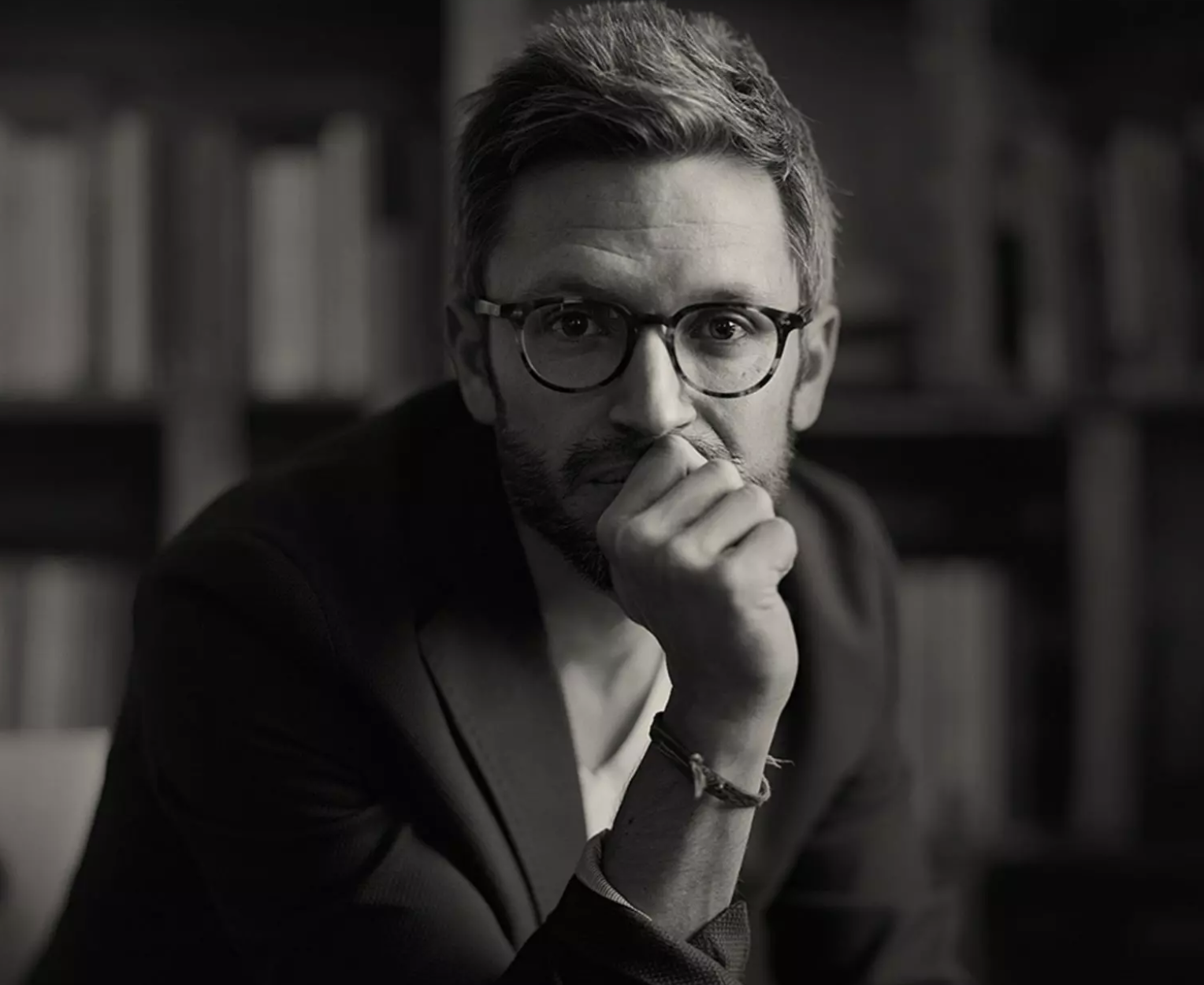
39053 vues
0 commentaires








